Research Integration Committee
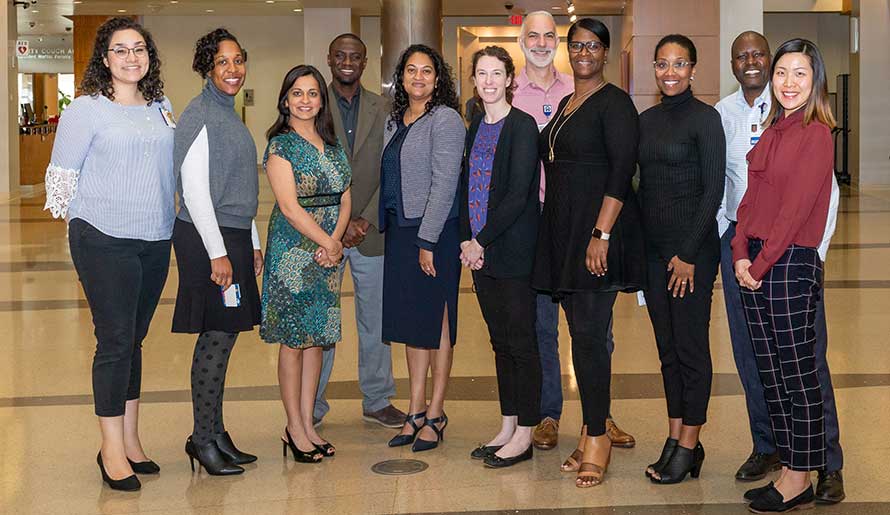
The Research Integration Committee serves as the liaison between our Community Advisory Boards and Researchers at Moffitt. Members include representation from community-based partnerships (including COEE Community Advisory Boards) and faculty across all five CCSG programs and Centers of Excellence. The charge of the Research Integration Committee includes:
- Serve as COEE liaisons to faculty in their respective programs
- Identify catchment area research opportunities and challenges
- Discuss catchment area funding opportunities
- Plan and monitor implementation of COEE faculty initiatives
- Engage with outreach, advocacy and policy stakeholders
Committee Members
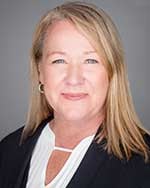 Anne Bidelman - Patient and Family Advisory Council
Anne Bidelman - Patient and Family Advisory Council
Moffitt Cancer Center
“I facilitate bringing the patient and family member voice into the planning, delivery and evaluation of care. If it has to do with a patient, then a patient should be involved in the process. I value creating mutually beneficial partnerships between leaders, researchers, clinicians, administrators and the patients and families they serve to continue our progress toward patient-and family-centered care and research.”
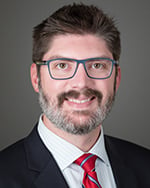 Fredrick Locke, MD - Immunology, Blood and Marrow Transplant & Cellular Immunotherapy
Fredrick Locke, MD - Immunology, Blood and Marrow Transplant & Cellular Immunotherapy
Moffitt Cancer Center
 Kosj Yamoah, MD, PhD - Cancer Epidemiology, Radiation Oncology and Health Disparity Group Leader
Kosj Yamoah, MD, PhD - Cancer Epidemiology, Radiation Oncology and Health Disparity Group Leader
Moffitt Cancer Center
“As an African American physician-scientist actively involved in the management of patients with prostate cancer, I have witnessed the disproportionate severity of disease burden among men of African origin, and I truly appreciate the importance of additional research in this field with the goal of improving outcomes in this population.”
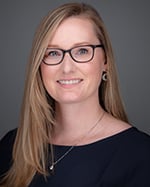 Jennifer Binning, PhD - Cancer Biology & Evolution, Molecular Oncology
Jennifer Binning, PhD - Cancer Biology & Evolution, Molecular Oncology
Moffitt Cancer Center
“My lab studies how oncogenic viruses re-wire critical host pathways to cause cancer. Many of the viruses we study have very few genes, yet they are able to cause significant health issues for many people. By conducting studies at the host-viral interface, we will gain valuable insight into both viral pathogenesis and cellular events that cause cancer. Our overall goal is to use this insight to address the cancer needs in our community as well as around the world.”
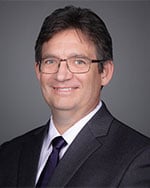 Doug Cress, PhD - Cancer Biology & Evolution
Doug Cress, PhD - Cancer Biology & Evolution
Moffitt Cancer Center
“Alternations (mutations) in our DNA drive cancer. Surprisingly, oncogenic mutations that are frequent in one group are rare in another. We believe it imperative to better characterize these differences, to determine why these differences exist, to determine how these difference impact treatment and to make the medical community aware of these differences so that "the right treatment will go to the right patient at the right time."
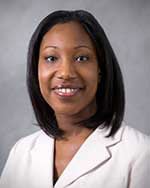 Jhanelle Gray, MD - Chemical Biology & Molecular Medicine, Thoracic Oncology
Jhanelle Gray, MD - Chemical Biology & Molecular Medicine, Thoracic Oncology
Moffitt Cancer Center
“Lung cancer is the leading cause of cancer-related death among a diverse patient population in the United States. My research extends beyond standard treatment towards personalized medicine and novel combination approaches that target specific mutations and the immune system to improve lung cancer outcomes. This is coupled with community outreach and engagement initiatives including the Lung and Thoracic Tumor Education (LATTE) Program which seeks to improve education, awareness, and outreach efforts directed at lung cancer to combat associated disparities and reach all communities.”
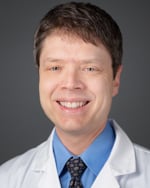 Jeff Lancet, MD - Chemical Biology & Molecular Medicine, Malignant Hematology
Jeff Lancet, MD - Chemical Biology & Molecular Medicine, Malignant Hematology
Moffitt Cancer Center
“I am a hematologic-oncologist and Chair of the Department of Malignant Hematology at Moffitt Cancer Center. My clinical and research focuses on novel therapies for patients with acute leukemias and related blood cancers. Our program includes clinical trials. We engage both community-based partners and patients through a variety of educational activities. Many of our clinical trials place an emphasis on recruiting underserved patients both locally and regionally, through partnerships with community-based oncology practices. Our department also supports programs that facilitate partnerships in care for rural and underserved patients with community-based practices, recognizing that improved access to cutting-edge care impacts outcomes in vulnerable patient populations. Our department works closely with the COEE to maximize clinical, educational, and research opportunities to offer. “
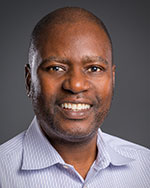 Clement Gwede, PhD, MPH, RN - Health Outcomes & Behavior
Clement Gwede, PhD, MPH, RN - Health Outcomes & Behavior
Moffitt Cancer Center and Florida Cancer Control Research Advisory Board
“The unequal burden of cancer emanates from complex interaction of multiple, deeply rooted and persistent systemic influences - pervasive social determinants of health. Our efforts to eliminate both the excess cancer burden and associated disparities must therefore focus on expanding benefits of evidence-based interventions for prevention, screening and early detection, early treatment and survivorship care to all people regardless of where they live and work. Community-engagement is a pivotal and central measure for addressing social determinants of health and to promote equitable delivery of novel scientific and clinical discoveries, and state of the art cancer care. No person, group or community in our catchment communities should be left behind! There is no better time than now, communities are ready and eager be involved.”
 Dr. Vani Simmons, PhD - Health Outcomes & Behavior and Tobacco Research Intervention Program Co-Director
Dr. Vani Simmons, PhD - Health Outcomes & Behavior and Tobacco Research Intervention Program Co-Director
Moffitt Cancer Center
"As Co-Director of the Tobacco Research and Intervention Program (TRIP) at Moffitt, I am committed to addressing tobacco use in our community. Tobacco use is the number one cause of preventable disease and death. One-third of all cancer deaths are related to tobacco, and racial/ethnic minorities and individuals from low socioeconomic backgrounds experience tobacco-related diseases at greater rates. Thus, our research efforts at TRIP are driven by our passion to develop new treatments that can reach underserved and vulnerable populations to reduce tobacco-related disparities."
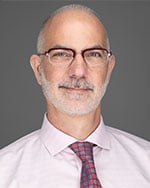 Peter Kanetsky, PhD, MPH - Cancer Epidemiology
Peter Kanetsky, PhD, MPH - Cancer Epidemiology
Moffitt Cancer Center
“Melanoma is a potentially fatal skin cancer, but one that is highly curable if caught at an early stage. Our local high levels of ultraviolet radiation exposure and the increasing incidence of this disease make research on this cancer extremely relevant to Floridians served by Moffitt. I conduct research to better understand how our genetic makeup influences the development, progress, and treatment of melanoma. I also lead studies, including one among Hispanics in the Tampa Bay area, to determine whether knowledge of genetic information can motivate individuals to better engage in skin cancer prevention activities.”
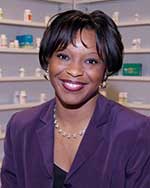 Angela Hill, PharmD* - Workgroup Enhancing Community Advocacy and Research Engagement (WE-CARE)
Angela Hill, PharmD* - Workgroup Enhancing Community Advocacy and Research Engagement (WE-CARE)
USF College of Pharmacy
"To Whom Much is Given, Much is Required" - Luke 12:48
"As a pharmacist, I take pride in being able to give back to the communities that have given so much to me by bridging the knowledge gap on not only the use of medications, but the diseases that they help treat, as well as provide insights on how research allows us to make even bigger impacts on health outcomes. It is very rewarding to be a resource for others, and to be able to share my talents with others while at the same time learning and continuing to develop myself through my work in and with the community."
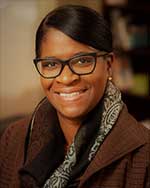 Yolanda Patterson* - Concorde Career Institute (Academics)
Yolanda Patterson* - Concorde Career Institute (Academics)
Tampa Bay Community Cancer Network Partner
"My daily work is to be a guiding light that helps define the course to our future; successful healthcare graduates and continual researchers for a better quality of life for our community members."
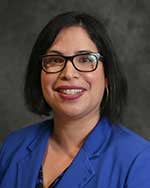 Venessa Rivera-Colon*, MEd, BSN, RN - USF Health Ponce Health Sciences University - Moffitt Cancer Center Partnership Community Advisory Panel
Venessa Rivera-Colon*, MEd, BSN, RN - USF Health Ponce Health Sciences University - Moffitt Cancer Center Partnership Community Advisory Panel
"In working with the community, we must be partners, humbly listening and providing support for the needs voiced by the community. Our role is to address these concerns and work in collaborative partnership to find impactful solutions."
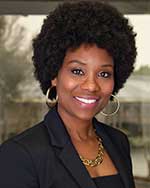 Felicia Bell* - Concorde Career Institute (Community)
Felicia Bell* - Concorde Career Institute (Community)
Tampa Bay Community Cancer Network Partner
"As a community advocate and servant leader, it is imperative to bridge communication gaps to ensure knowledge is spread to all communities that transcends all barriers, cultural or economic. To continue practices and traditions because that is what we do, is no longer an effective way to penetrate new territory, we have to be adaptive and that means changing the norm."
* Community Representatives
